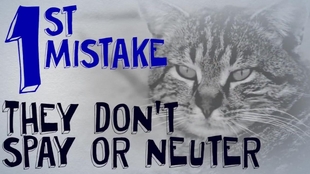"Understanding Pet Poison: Signs, Prevention, and Emergency Response for Pet Owners"
#### What is Pet Poison?Pet poison refers to any substance that can cause harm or illness to pets, including dogs, cats, and other animals. Common sources o……
#### What is Pet Poison?
Pet poison refers to any substance that can cause harm or illness to pets, including dogs, cats, and other animals. Common sources of pet poison include household products, plants, foods, and chemicals that are toxic to pets. Understanding what constitutes pet poison is crucial for pet owners to ensure the safety and well-being of their beloved animals.
#### Common Sources of Pet Poison
Many everyday items can be hazardous to pets. Some common sources of pet poison include:
1. **Household Chemicals**: Cleaning supplies, antifreeze, and pesticides can be extremely toxic. Always store these products out of reach of pets.
2. **Human Foods**: Certain foods that are safe for humans can be toxic to pets. For example, chocolate, grapes, onions, and garlic can cause serious health issues in dogs and cats.
3. **Plants**: Many houseplants and garden plants are poisonous to pets. Lilies, azaleas, and sago palms are just a few examples that can lead to severe reactions.
4. **Medications**: Human medications, including pain relievers and antidepressants, can be fatal to pets if ingested. Always keep medications secured and out of reach.
5. **Rodenticides and Insecticides**: These substances are designed to kill pests but can also be lethal to pets if consumed.
#### Signs of Pet Poisoning
Recognizing the signs of pet poisoning is vital for prompt treatment. Symptoms can vary depending on the substance ingested but may include:

- Vomiting or diarrhea
- Lethargy or weakness
- Seizures or tremors
- Excessive drooling
- Difficulty breathing
- Unusual behavior or disorientation
If you notice any of these signs in your pet, it's essential to seek veterinary care immediately.
#### Prevention of Pet Poisoning

Preventing pet poison incidents involves a few key strategies:
1. **Educate Yourself**: Familiarize yourself with common toxic substances and plants. Knowledge is your best defense against pet poisoning.
2. **Secure Your Home**: Store all chemicals, medications, and potentially harmful substances in secure cabinets. Use child-proof locks if necessary.
3. **Be Cautious with Food**: Avoid feeding your pets human food unless you are sure it is safe. Always check with your veterinarian if you're unsure.
4. **Choose Pet-Safe Plants**: If you enjoy gardening or decorating your home with plants, opt for pet-safe varieties to minimize risks.
5. **Regular Vet Check-Ups**: Regular visits to the veterinarian can help ensure your pet's overall health and allow for discussions about potential hazards.
#### What to Do in Case of Pet Poisoning
If you suspect your pet has ingested something toxic, act quickly:

1. **Contact Your Veterinarian**: Call your vet immediately for guidance. If they are unavailable, contact an emergency animal clinic or the ASPCA Animal Poison Control Center.
2. **Provide Information**: Be ready to provide details about what your pet ingested, how much, and when it happened. This information can help the vet determine the best course of action.
3. **Do Not Induce Vomiting**: Unless specifically instructed by a veterinarian, do not attempt to induce vomiting, as it can sometimes cause more harm.
4. **Follow Professional Advice**: Follow the veterinarian's instructions carefully. They may recommend bringing your pet in for treatment or monitoring them at home.
#### Conclusion
Understanding pet poison is crucial for every pet owner. By being aware of common toxic substances, recognizing the signs of poisoning, and knowing how to prevent incidents, you can help ensure your pet remains safe and healthy. Always prioritize your pet's well-being and seek professional help whenever necessary. Your vigilance can make all the difference in preventing pet poison emergencies.